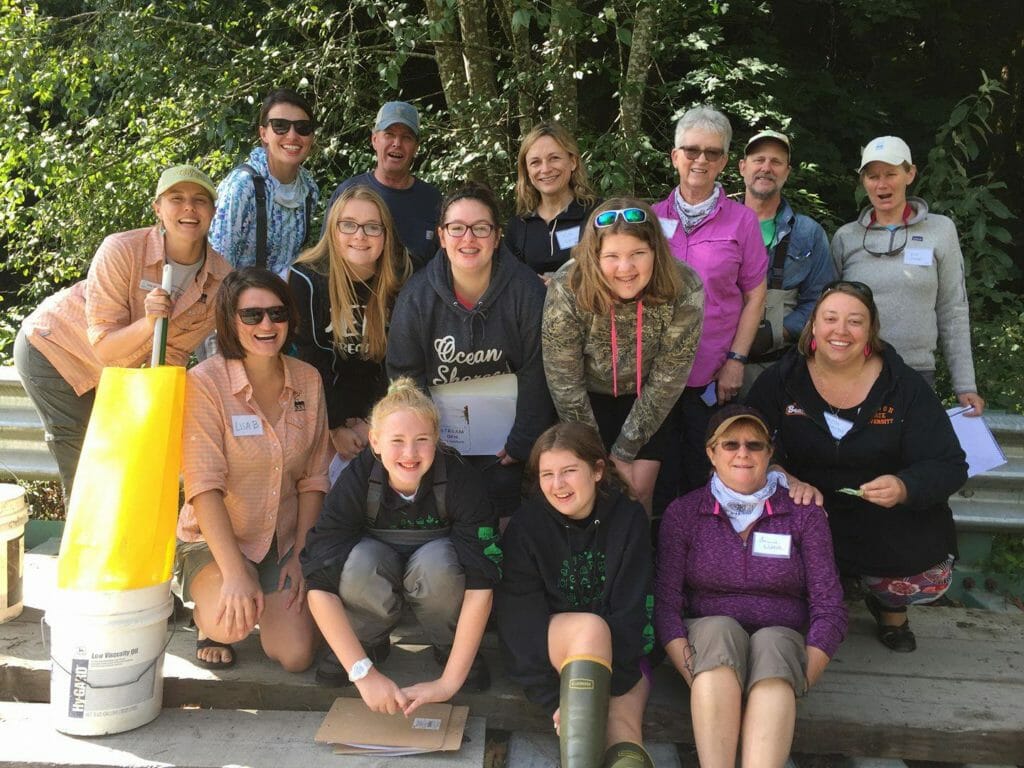In what feels like a lifetime ago, I was a disaster relief volunteer. I was always astonished with how grief stricken and tumultuous conditions could unite people in supporting one another with, oftentimes, simple acts of kindness. As we are all experiencing this pandemic differently, I have found great comfort in how people are uniting during this trying time.
Shortly after my home state imposed a stay safe at home order, I received a thoughtful, individualized email from my TU chapter checking in on me. It was a bright spot in an otherwise trying day. There was no ask or directive in the message, just a simple inquiry about my well-being.
This got me thinking. What does “community” look like to me? How does it feel? What communities do I consider myself a member?

I also started thinking about the role chapters and councils might play to support their community at large, in this time. How might chapters reach outside of their membership to lend support? What might that look like? How might that feel?
We know that an inclusive, community component is a facet of a healthy TU chapter. And, in more conventional times, we typically know how to cultivate a sense of community by organizing affable events in accessible locations with a broad and friendly invitation.
During this time, I was left wondering how chapters and councils were fostering community in light of event prohibitions, travel restrictions, and other limitations. Since my quandary, I have been able to connect with TU leaders who have shared their endeavors while keeping their communities safe.
Below and in this recent TU leader training you can learn about some of their efforts:
-The interim New Jersey Council Chair called all of her council board members and chapter presidents to inquire about their well-being and answer questions.
-Oregon’s Clackamas River Chapter shared a newsletter with community resources and assistance opportunities for members, collaborators and supporters to connect those who could lend support with those that might need it.
-New York Trout in the Classroom (TIC) programs shared videos of staff led trout releases with TIC students, staff and supporters for an uplifting update. You can view one TIC video here.
-The Southeast chapters participated in a virtual trivia event hosted via Zoom. Participants were able to connect, be entertained and even learn via video conferencing. Contact Jeff Wright to learn more.
-The Oregon Council’s affinity group, PDX Women on the Fly contacted their business donors and TU Businesses to inquire about their status and learn how the group might help. They now have a plan to provide support.
-Multiple chapters have reached out to school districts to inquire how they might help. Many chapters are including printed Stream Explorers in prepared lunches in accordance with safety standards.
-Washington’s Klickitat Chapter hosted a Facebook watch party of the 5 Rivers Odyssey film, Resilient Waters, inviting people from across their chapter geography. Review free TU films as well as free feature films for hosting a virtual event.
-The Central New Jersey Chapter’s Membership Committee is calling members to inquire about their well-being and offer opportunities to connect with community resources, from family friendly home activities to food insecurity support.
-Colorado’s South Denver School District custodians are caring for Trout in the Classroom (TIC) trout tanks while schools are not in session thanks to a chapter led inquiry. Learn more about TIC program adaptions.
-TU’s Veterans Service Partnership is extending the same 1-year free membership offered to military veterans to members of the medical, fire service, and law enforcement communities. Chapters are identifying individuals and opportunities for post-pandemic outings for these new members.
Let’s continue the conversation–How might your chapter support your current or future collaborators? Are there ways that your chapter has reached outside of your conservation community to lend support to your broader community? Learn more via the Tacklebox resources or join the conversation in the TU Leaders Forum.

